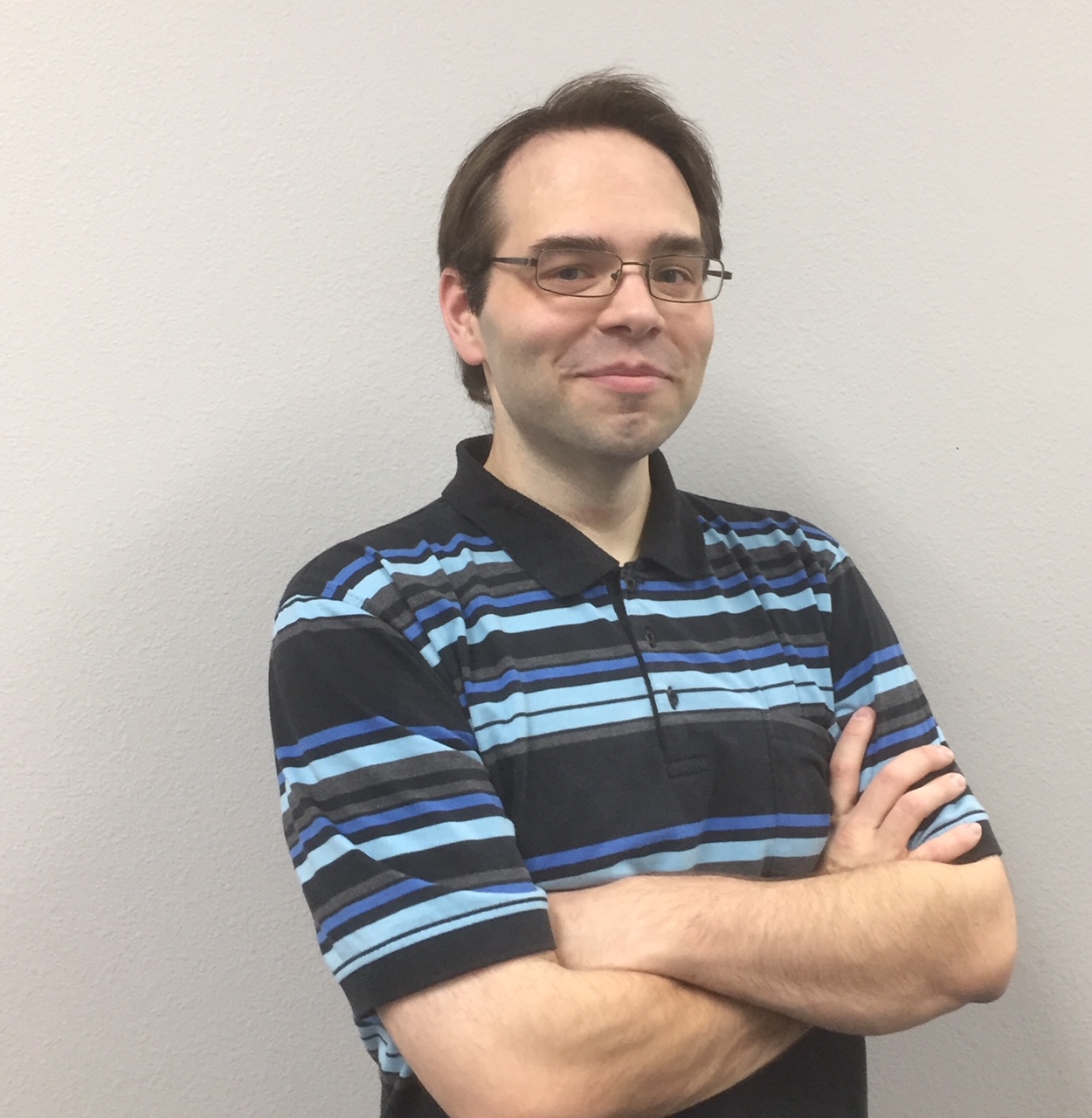
How to Write an Article for Connections: Word from the Interactive Measurement Group

Every member of the Interactive Measurement Group (IMG) has a story to tell. Whether it’s your first semester in the lab or it’s been years since you walked into CDC 520, we’d like to hear what you have to say. This editorial provides helpful advice to get you started on writing your own article.
First, some background. The purpose of the newsletter is to create a sense of community among current and former lab members by providing articles that help fellow lab members achieve their educational, professional, and personal goals. Therefore, articles need to meet two criteria: they should be written from a personal perspective and they should offer something useful to readers.
Make it personable.
- To connect with other lab members, your article should describe your unique perspectives and experiences. It should include information that cannot be found in any other article or website, because the article describes your own unique circumstances, actions, expectations, thoughts, and feelings. It shouldn’t be possible for anyone to write your article but you.
- As you write, keep in mind that your article will be distributed via email and posted on our lab website. Therefore, make sure your writing is personable, but not too personal. You don’t want to share anything about yourself that you wouldn’t want a future employer, employee, colleague, student, or stranger to know. Don’t write anything that might decrease your chance of getting into graduate school or getting some future job. Be aware of both the content you write and the way you write about it.
Think about how your article can help others.
- Your article should not just be a narrative of one-thing-after-another. Consider how current, past, and future lab members will benefit from your insights and experiences. Your article should be of real use to the members of the Interactive Measurement Group.
Our newsletter includes five types of articles. In the Spotlight highlights academic and career accomplishments. Ideas that Changed Our Lives explains how a book, video, or website impacted your educational, professional, or personal life. Between Friends provides your personal perspectives and advice about how to address challenging situations. Lessons Learned shares how lab members overcame difficulties. Finally, Wellness Corner provides advice about empirically supported methods of improving quality of life. Select for more information on the five sections.
Articles vary in length from a single paragraph (e.g., an announcement celebrating an accomplishment) to three or four pages. Most articles are one to two pages. You should talk with your action editor about the appropriate length for your article.
The Editorial Process
The first step is to select a topic to write about.
- If you aren’t sure what to write about, try reading one of Kim’s recommended books. Then write an article describing what you got out of the book, including how it affected you personally.
- If you find you’re struggling with the topic you’ve chosen to write about, ask your action editor for help. Once you complete a first draft and send it to your action editor, he/she will be able to tease out a main idea from your draft and provide you with some guidance to refine the topic of your piece.
Once you have drafted your article, send it to your designated editor. Don’t worry if it is not perfect. We are here to help you improve it.
- We will give you feedback on your article. To get more perspectives, we will also solicit feedback from other lab members. At this stage, we’ll usually provide you with big picture feedback on how to improve your article as a whole.
- Incorporate this feedback as you see fit: You are not required to incorporate every piece of feedback that you receive because, ultimately, it is your article. If your vision of your article differs from ours, let us know why you disagree, explain the approach you are taking, and then go for it! You should use our feedback to help you write the best article you can, even if you are following a different vision than the one we suggested.
- If you are struggling with incorporating the feedback you receive, talk with your editor. They can provide you with strategies to help you determine which feedback to follow and which to disregard.
- Most of our articles go through several rounds of feedback and revisions before they are ready to be published. Writing is hard, but don’t be discouraged. The editors are here to help you find your voice and tell your story in a clear and compelling way. Fundamentally, we appreciate you writing for the newsletter in the first place.
Once the content for your article is nearly finished, we will copy-edit your piece. This involves editing the text for proper grammar, punctuation, syntax, etc. Then you will be asked for your final approval of the article. If you disagree with some of the changes, let us know! We won’t publish your article until you and your editors are completely satisfied with it. Once you accept our final changes, your article will be ready to be distributed via email and posted on the lab website.
If you have any concerns or experience any difficulties during the writing and editing process, please let us know. We’re here to help you share your ideas.
Types of Articles
Our newsletter has five types of articles. We provided brief descriptions above. Here’s more information about each type. You can also look at previous issues of our newsletter for examples.
In the Spotlight
Have an accomplishment to share? The spotlight is the perfect place for it. Here we will celebrate lab accomplishments such as publications and conference attendance or personal accomplishments such as getting into graduate school or getting a prestigious job. We would love to hear where your hard work has taken you and share in celebrating your accomplishments.
Ideas that Changed Our Lives
Do you have a book, website, or video that impacted your education or professional life? Please tell us about it and how it helped you succeed. You can talk about how the resource helped you do research, write papers, be organized, get into a program, get a job, or even stay healthy. Tell us a little bit about the resource, so readers can decide if it interests them, but focus mostly on how it benefited you.
Between Friends
Do you have advice about school, graduation, or work? We are all trying to accomplish similar goals and we would love to hear your experiences with the process. You can discuss such varied topics as how to select a graduate advisor, handle difficult conversations, or get work experience and clinical experience. Your experience can help others on the road to success.
Lessons Learned
Everyone has struggled to overcome hurdles in their lives. Do you have an experience you want to share about how you were able to solve the problem and achieve your goal? What have you learned from your experience and how has it propelled you forward? We would love to hear your inspiring stories.
Wellness Corner
What advice do you have about improving quality of life? Hundreds of ideas abound, but what have you found works best for you personally, which also has solid empirical evidence? For example, what are the best methods of stress management, anger management, and school-work-life balance? In addition to sharing your personal experiences, provide one or more resources to help readers get started or learn more.
 April Contreras graduated with a Research Honors B.A. in Psychology and Neuroscience from UNLV in Spring 2018. She was a member of the Interactive Measurement Group for two years, and has been working with the Hines Translational Neuroscience Group since Fall 2016. April is currently the lab manager for Rochelle Hines at the Hines Group, and she spends her days using biochemical, physiological, and behavioral methods to study the role of non-principal cells in neurodevelopmental and psychiatric disorders.
April Contreras graduated with a Research Honors B.A. in Psychology and Neuroscience from UNLV in Spring 2018. She was a member of the Interactive Measurement Group for two years, and has been working with the Hines Translational Neuroscience Group since Fall 2016. April is currently the lab manager for Rochelle Hines at the Hines Group, and she spends her days using biochemical, physiological, and behavioral methods to study the role of non-principal cells in neurodevelopmental and psychiatric disorders.
 Ying Huang joined the Interactive Measurement Group in Fall 2017. She will graduate with a major in biological sciences and a minor in psychology in Spring 2019. After graduation, she plans to go to medical school to pursue a career in either Obstetrics or Psychiatry.
Ying Huang joined the Interactive Measurement Group in Fall 2017. She will graduate with a major in biological sciences and a minor in psychology in Spring 2019. After graduation, she plans to go to medical school to pursue a career in either Obstetrics or Psychiatry.
 Matt Helm has been in the Interactive Measurement Group since Spring 2018. Matt is majoring in Psychology at UNLV and hopes to graduate in Spring of 2020. After graduation Matt hopes to attend a Ph.D. program related to Psychology. Matt’s ultimate goal is to work as a professor of psychology at either a university or community college.
Matt Helm has been in the Interactive Measurement Group since Spring 2018. Matt is majoring in Psychology at UNLV and hopes to graduate in Spring of 2020. After graduation Matt hopes to attend a Ph.D. program related to Psychology. Matt’s ultimate goal is to work as a professor of psychology at either a university or community college.
 Kimberly A. Barchard is the Director of the Interactive Measurement Group and an Associate Professor in the Department of Psychology at UNLV. She joined UNLV in 2001 after obtaining her MA and PhD in Psychometrics. She works to empower students and colleagues to accomplish their personal and professional goals, particularly through the development of organization, communication, and research skills.
Kimberly A. Barchard is the Director of the Interactive Measurement Group and an Associate Professor in the Department of Psychology at UNLV. She joined UNLV in 2001 after obtaining her MA and PhD in Psychometrics. She works to empower students and colleagues to accomplish their personal and professional goals, particularly through the development of organization, communication, and research skills.